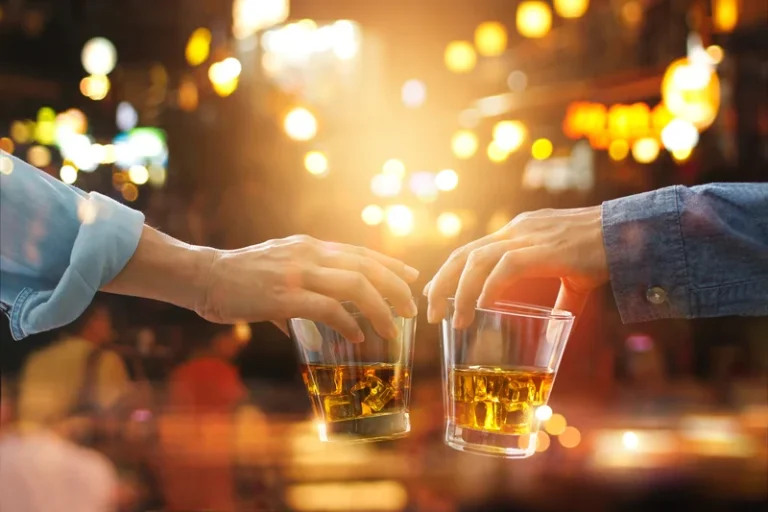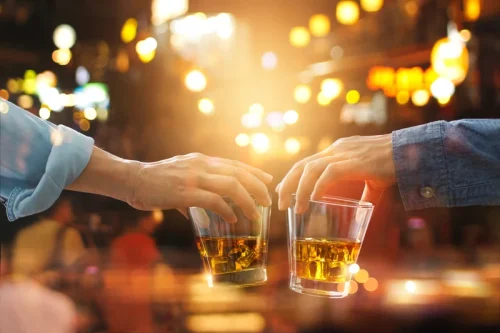
Unfortunately for wine-lovers, there’s a lot of things in wine that can cause negative reactions or intolerances. If people are suddenly sneezing a lot, it may be due to exposure to an irritant or pollutant. It may also mean people are developing a cold or other respiratory illness. If there is an underlying cause of sneezing, such as a cold or allergy, treatment may help to relieve sneezing and other symptoms. The influenza virus which causes flu can sometimes cause sneezing, but a cough, fever, and headache are more common symptoms. If you feel sick as soon as you finish your drink, your body might not be able to process alcohol.
Nasal polyps
- There are a lot of factors that come into play, so we asked the experts to break down the anatomy of a sneeze.
- Black pepper acts as a chemical irritant on the nerves in the nasal mucosa, which causes sneezing.
- The amount of alcohol a person drinks is the biggest predictor of BAC.
- Physical irritants such as bright sunlight can also cause sneezing.
- Well, alcohol intake may lead to night sweats by speeding up your heart rate and widening your blood vessels, triggering the release of perspiration.
- Sunset works with the body to break down alcohol quickly and effectively, so you don’t experience the negative symptoms.
- Sneezing is a symptom of many conditions, from allergies to infections.
Normally your body produces an enzyme called diamine oxidase (DAO) to break histamine down. If your body doesn’t produce enough active DAO, you may react to histamine in foods and beverages. Read beverage labels to see whether they contain ingredients or additives you know cause a reaction, such as sulfites or certain grains. Be aware, however, that labels might not list all ingredients. If sneezing impacts your quality of life, talk to your doctor about ways to reduce or eliminate the problem.

Alcohol allergy: all the signs to look out for (including going red when you drink)

These antibodies trigger an allergic reaction in your body. Combining alcohol with certain medications also can cause reactions. Alcohol intolerance is caused by a genetic condition in which the body can’t break down alcohol efficiently. The only way to prevent these uncomfortable reactions is to avoid alcohol.

Signs Your Body Is Telling You You’re Drinking Too Much
If your favourite tipple leaves your cheeks burning, then yes – you may well have an alcohol sensitivity or intolerance, says nutritionist Jade Taylor, of Kitchen Home. Stopping alcohol abruptly after long-term heavy drinking can also lead to alcohol withdrawal syndrome, which commonly manifests as symptoms like nausea and vomiting. Research studies on the association between weight gain and alcohol consumption have ended in conflicting results. In other words, weight gain isn’t inevitable, but you could still tip the scale up from drinking too much alcohol. In some cases, they might use an oral challenge test to diagnose an allergy or intolerance.
- You might have a slower reaction time and lowered inhibitions.
- Drinking too much alcohol may lead to a tingling sensation or numbness in your legs, feet, or hands, known as alcoholic neuropathy.
- Remember those old cartoons when black pepper was used to launch a character into a sneezing attack?
- And since alcohol is a diuretic, you’ll probably visit the bathroom more frequently at night, which can significantly hinder sleep.
- Research studies on the association between weight gain and alcohol consumption have ended in conflicting results.
- Closing your eyes when you sneeze is an automatic reflex reaction.
- For some of us, half a dozen drinks during a night out aren’t yet enough to faze us.
- At this stage, you will no longer respond to what’s happening around or to you.
- “For some people with sensitive airways, such as asthmatics, consuming sulphites in alcohol may cause wheezing,” she explains.
- If the sinuses become inflamed and swollen, a person may develop sinusitis.
In addition, some people find that the alcohol in these drinks irritates their nose, leading to sneezing. This dilation occurs first in the brain, so you may feel flushed or warm after only a few sips of alcohol. The dilation then extends to blood vessels throughout your body, including those in your nose. When you drink alcohol, it’s absorbed into your bloodstream and quickly travels to your brain. As it does, it causes your blood vessels to dilate or widen. Nonallergic rhinitis most often doesn’t cause an itchy nose, eyes or throat.
This is a sneezing after drinking alcohol potentially life-threatening allergic reaction. In some cases, reactions can be triggered by a true allergy to a grain such as corn, wheat or rye or to another substance in alcoholic beverages. Having a mild intolerance to alcohol or something else in alcoholic beverages might not require a trip to a doctor.
